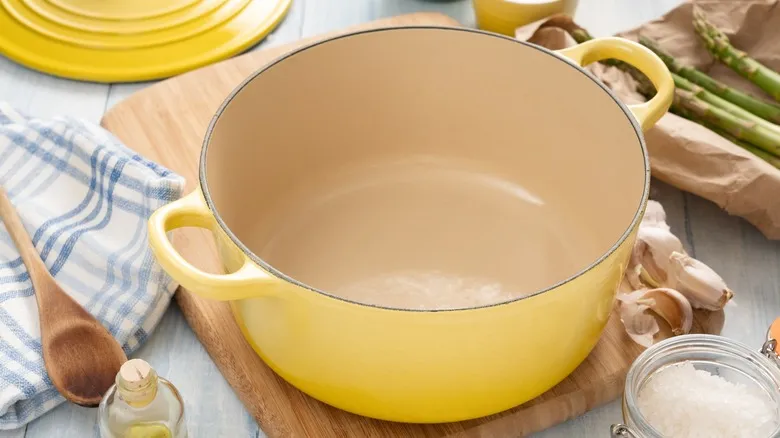History and key features of Dutch ovens
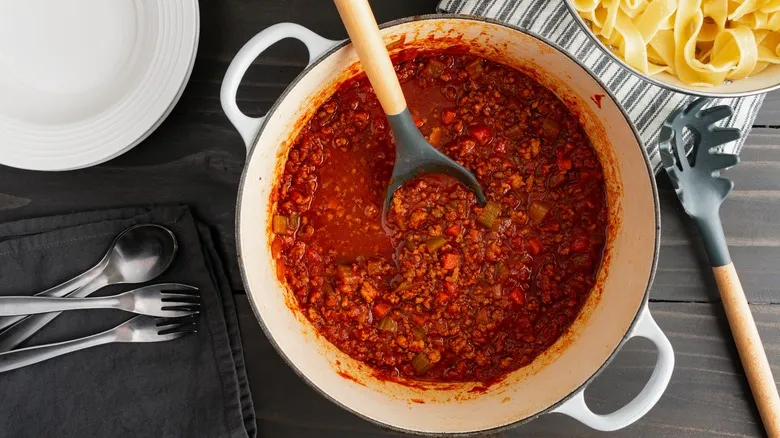
The design of the Dutch oven clearly has its merits. This cookware has been utilized since the 1600s, when the Dutch developed an innovative technique for casting metals using sand molds. During that period, the Netherlands was known for producing high-quality copper and brass pots, which were not exactly budget-friendly. In the early 1700s, an Englishman adapted this pot-making technique to cast iron, a more affordable material, while retaining the name Dutch oven.
As a result, the cast iron Dutch ovens we use today are essentially the same robust vessels that were employed in the 1700s, as well as during the American colonial period and the Lewis and Clark expedition. They are nearly indestructible, making them heirloom-worthy cookware, and they excel at heating up and maintaining heat. However, they are quite heavy, weighing between 11 to 20 pounds depending on their size. Additionally, cast iron Dutch ovens require proper care and seasoning like any cast iron skillet, meaning no soaking, no dishwasher, no steel wool, and caution when cooking acidic foods like tomatoes, as metallic flavors can leach into the dish and affect the seasoning.
On the other hand, enameled cast iron Dutch ovens offer a different experience. They are much easier to maintain—cleaning one with burnt food stains is relatively simple. You can also cook acidic foods in them without worry, so feel free to whip up your tomato sauce in your beautiful enameled Dutch oven. While they are similar in versatility to ceramic Dutch ovens, which are another popular option, ceramic is significantly lighter but far less durable; a drop could render it unusable.
Who needs a Dutch oven, and who doesn't
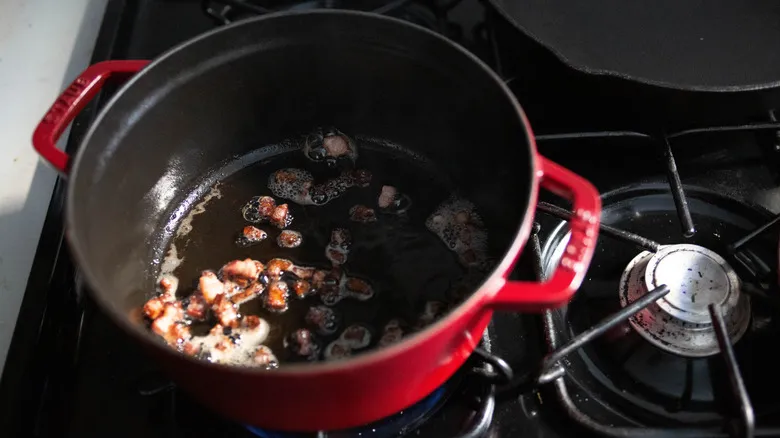
The style of cooking you typically engage in plays a significant role in determining whether a Dutch oven is necessary for you. If you enjoy slow cooking and love preparing braises, stews, and chilis, you'll appreciate the Dutch oven's capacity to retain low, consistent heat for extended periods. Additionally, its sturdy base can become extremely hot, making it ideal for searing meats before braising or developing a rich fond. Dutch ovens are also versatile enough to transition seamlessly from the stovetop to the oven, which is great for creating easy, one-pot meals with minimal cleanup. Plus, with its heavy, steam-retaining lid, a Dutch oven excels at baking everything from crusty breads to pizzas and cobblers.
While the Dutch oven is akin to a versatile Swiss Army knife in the kitchen, your cooking habits and lifestyle may not necessitate one. If you primarily use methods like steaming, grilling, or pan-frying, a Dutch oven might be more than you need. Given its weight and size, it may not be suitable if you have limited storage space or struggle with lifting heavy items. However, if you don’t see yourself in this description and are intrigued by the possibilities mentioned earlier, investing in a Dutch oven could be a valuable addition to your cooking toolkit.
Recommended
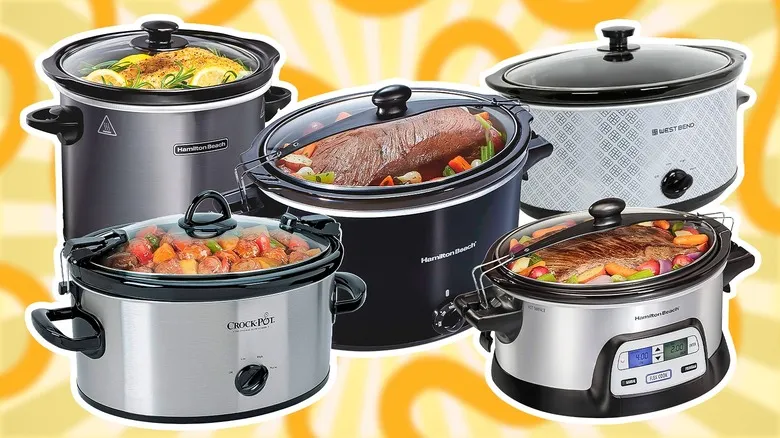
The 15 Best Slow Cookers Money Can Buy, According To Reviews
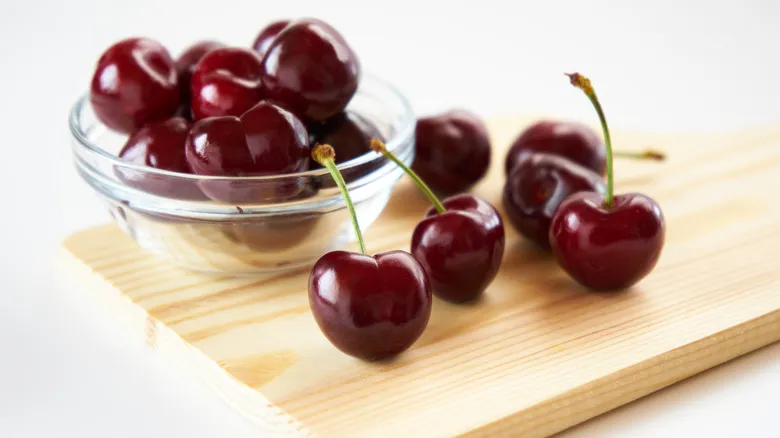
Effortlessly Pit Cherries In A Flash With A Genius Chopstick Hack
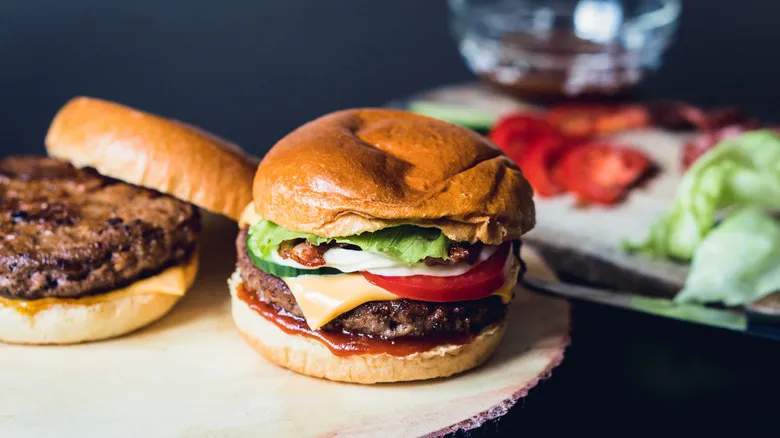
The Air Fryer Is Your Answer For Fuss-Free Burgers
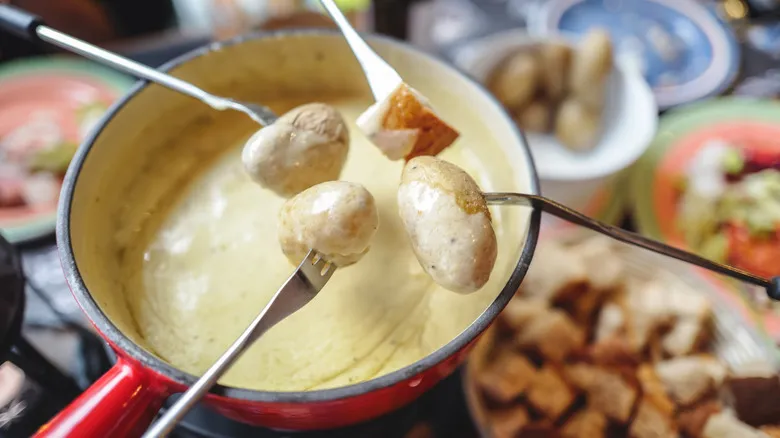
You Think You Don't Need Fondue Forks, But Here's Why You Do
Next up

